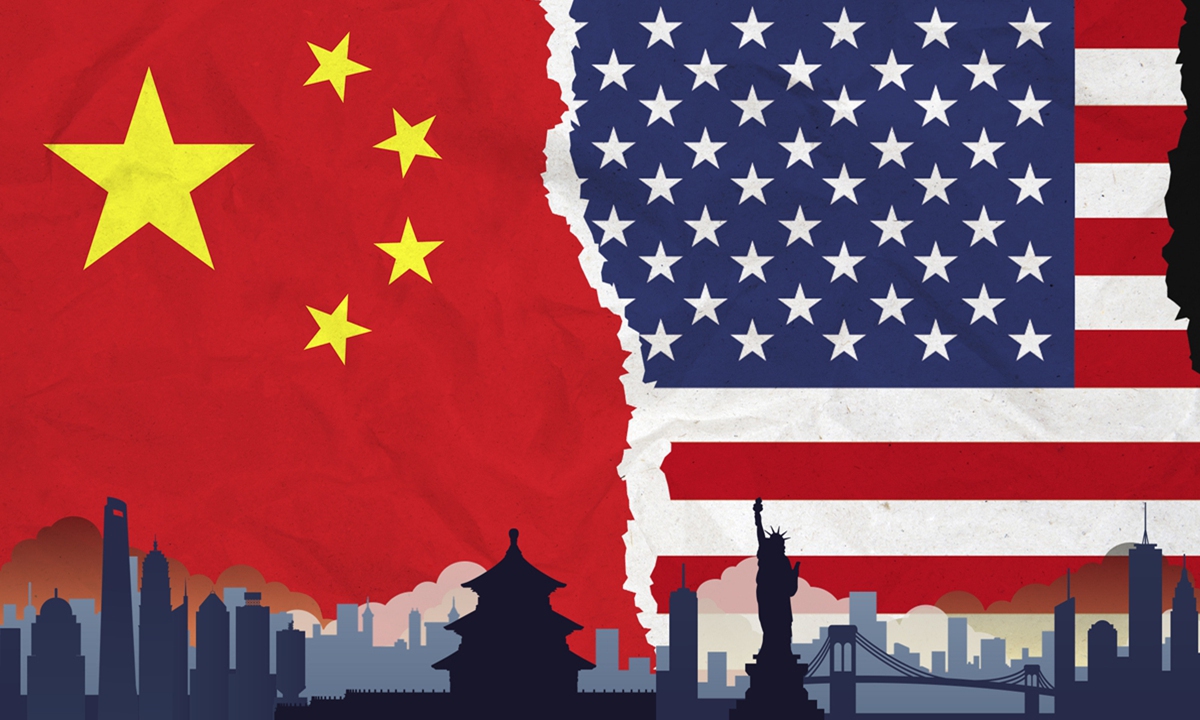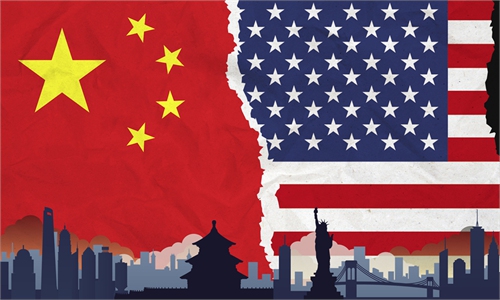China adds three US firms to unreliable entities list for selling arms to Taiwan island

China-US Graphic: GT
China on Monday added three US companies including Boeing Defense, Space & Security, General Atomics Aeronautical Systems and General Dynamics Land Systems to the unreliable entities list, and imposed several sanctions, including a ban on trade with China as well as huge fines, against the firms for participating in arms sales to the Taiwan island.
According to two statements on the website of the Ministry of Commerce (MOFCOM), the three US companies are banned from imports and exports activities related to China or increasing new investments in China. Additionally, their executives are banned from entering China, and will have any existing entry or work permits revoked.
As for Boeing Defense, Space & Security, the company will face fines doubling the value of its military sales to Taiwan since the implementation of the unreliable entities list. The company will be required to pay the penalties within 15 days, or face punishments including a further doubling of the penalty, according to the statement.
In February 2023, China placed US defense contractors Lockheed Martin Corp and Raytheon Missiles & Defense to its unreliable entities list. However, it was found that US firm Caplugs evaded regulations prescribed under the unreliable entities list by transferring commodities purchased from China to companies on China's unreliable entities list, MOFCOM said.
MOFCOM urged Caplugs to take immediate actions to ensure that it will not transfer related goods, technologies and services imported from China to companies on the unreliable entities list, and submit relevant evidence. Otherwise, the Chinese authorities will take measures against the company in line with laws and regulations.
By including the companies in the unreliable entities list, China is taking necessary measures to protect its national security and territorial integrity, as the US companies selling arms to Taiwan island harms peace and stability across the Taiwan Straits, Gao Lingyun, an expert from the Chinese Academy of Social Sciences told the Global Times on Monday.
China has been urging US to stop arms sales and cut military contact with China's Taiwan region.
Chinese foreign ministry spokesperson Mao Ning told a press briefing in February that the US arms sales to Taiwan seriously violate the one-China principle and the stipulations of the three China-US joint communiques, particularly the August 17 Communique of 1982.
"Such sales undermine China's sovereignty and security interests, and harm China-US relations and peace and stability across the Taiwan Strait," Mao said.
Mao said China urges the US to abide by the one-China principle and the three China-US joint communiques, stop arms sales to and cut military contact with Taiwan, and stop creating factors that could heighten tensions in the Taiwan Straits.
Head of the secessionist Democratic Progressive Party (DPP) Lai Ching-te, who won the island's election in January with only 40 percent of the vote, formally take office on Monday.
The future of mainland-Taiwan economic and trade relations won't look good, given Lai's strong confrontational mentality toward the mainland, Wang Jianmin, a senior cross-Straits expert at Minnan Normal University in Fujian, told the Global Times on Monday.
"The DPP's attempts to seek mainland-Taiwan economic 'decoupling' and its unreasonable smearing of the mainland will likely remain unchanged. As a result, mainland-Taiwan economic and trade ties may continue to be difficult, with possibility of deterioration amid growing risks," Wang said.
The economic and trade relation is still the basis for cross-Straits relations, and the central government will continue to share with people and businesses of Taiwan development opportunities brought by Chinese modernization and provide more favorable policies to help them better integrate with national development, Wang said.
Global Times

